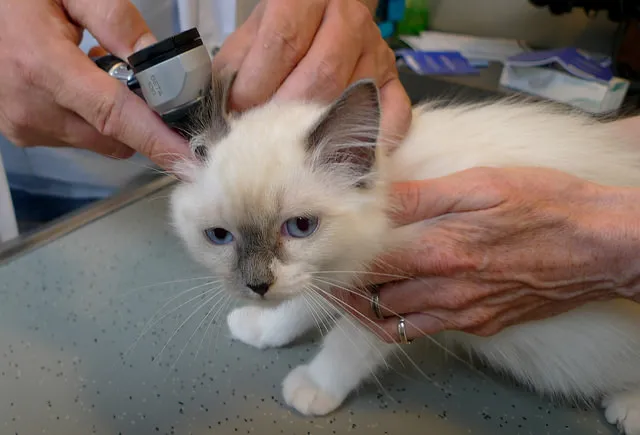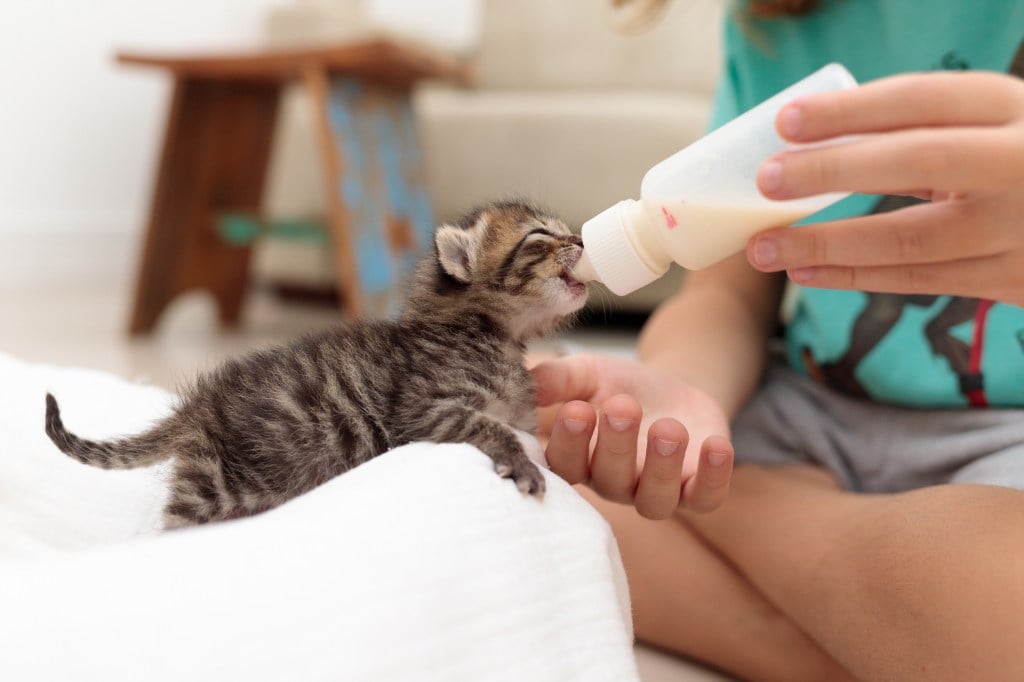Table of Contents
Kittens are adorable little bundles of cuteness and joy that come with a lot of responsibility. Part of that responsibility is staying on top of your kitten’s health.
Because kittens don’t have fully-developed immune systems, they are especially susceptible to various diseases that can cause serious illness if left untreated.
Let’s go through some of the most common diseases that affect kittens. Learning about these diseases will give you a good starting point for understanding which health conditions can affect your kitten.
Common diseases that affect kittens
Intestinal parasites
Kittens’ bodies undergo rapid development as they mature into adult cats. Such rapid development requires a nutrient-packed diet. Unfortunately, intestinal parasites like roundworms and hookworms rob a kitten’s body of the nutrients it needs to grow and thrive.
Kittens can get intestinal worms in several ways. For example, the worms can pass from the mother during birth or nursing. Kittens can also get worms if they happen to eat feces that are contaminated with the worms.
Because a kitten’s immune system isn’t yet strong enough to fend off the worms, these pesky parasites end up wreaking havoc in a kitten’s body.
Intestinal parasites cause many symptoms, like vomiting, diarrhea, dehydration, and a dull coat. A kitten’s belly can also become visibly bloated with a heavy intestinal parasite load. A heavy hookworm infestation could be fatal in kittens because hookworms feed on a cat’s blood, leading to significant internal bleeding.
Kittens with intestinal parasites also experience a ‘failure to thrive,’ which is a general description of not growing, gaining weight, or doing everyday kitten things.
Fortunately, preventing intestinal parasites is easy in kittens. Starting at just two weeks of age, kittens should receive a deworming medication every two weeks until eight weeks of age. Your veterinarian will also perform fecal exams to checks for worms in your kitten’s feces. If your kitten has worms, your veterinarian will prescribe a dewormer.
External parasites
Parasites are a problem outside of the body, too. Fleas land on a kitten’s fur, then set up shop on the skin to feed on the kitten’s blood. A heavy flea infestation makes a kitten miserably itchy and puts them at risk of developing anemia (lack of red blood cells) because of blood loss.
Veterinarian-prescribed monthly flea prevention helps to keep fleas away from your kitten. Regularly check your kitten’s fur and notify your veterinarian if you see fleas.
Ear mites, particularly Demodex, make their home in a kitten’s ear. Like fleas, ear mites can cause intense itchiness, leading to constant scratching and head shaking. If untreated, ear mites can inflame the inside of the ear. If your kitten has ear mites, your veterinarian will prescribe a treatment to get rid of the mites and reduce inflammation, giving your kitten much-needed relief.
Diarrhea
Kittens can experience diarrhea for many reasons, including intestinal parasites, stress, or diet change. Diarrhea can be much more severe in kittens than adult cats, given kittens’ small bodies and under-developed immune systems. For example, diarrhea for just one or two days can lead to serious dehydration and significant nutrient deficiencies.
Besides having diarrhea, your kitten may be weak and eat less than usual.
If your kitten has had diarrhea for more than one or two days, take them to your veterinarian for diagnosis and treatment.
Upper respiratory diseases
The upper respiratory system includes the nose, sinuses, oral cavity, and vocal folds. Upper respiratory diseases are far more common in kittens than older cats.
These diseases are caused by various infectious agents, like viruses, bacteria, and fungi. Symptoms are generally similar regardless of the cause and include sneezing, coughing, and nasal and oral discharge.
Feline herpes virus and feline calicivirus are two common upper respiratory diseases in kittens.
Upper respiratory diseases can be highly contagious, so affected kittens should be isolated from healthy kittens and treated according to your veterinarian’s instructions. Vaccines for these diseases are also available.
Feline panleukopenia
Feline panleukopenia is no longer common, thanks to vaccines. However, it’s still worth a mention.
Feline panleukopenia, also known as feline distemper or feline parvovirus, primarily affects kittens around 3 to 5 months of age. Symptoms include depression, severe diarrhea, appetite loss, and weakness.
This disease can be fatal in kittens if left untreated. Kittens less than eight weeks old are at high risk of dying from the disease. Treatment is supportive and includes rehydration and feeding a healthy diet.
Fortunately, vaccines protect kittens from this disease. Follow your veterinarian’s vaccination schedule for your kitten.
Although the diseases listed above commonly affect kittens, staying on top of your kitten’s care will go a long way in keeping them healthy.
Have your veterinarian examine your kitten shortly after you adopt them. Make sure to follow all care instructions, including vaccinations, flea prevention, and a well-balanced kitten diet.
The content is not intended to be a substitute for professional veterinarian advice, diagnosis, or treatment. Always seek the advice of your veterinarian or other qualified health provider with any questions you may have regarding a medical diagnosis, condition, or treatment options.






